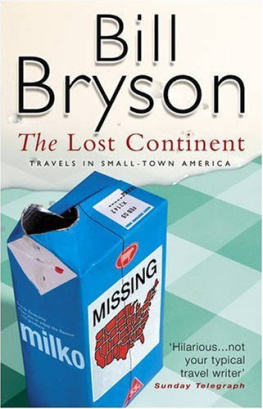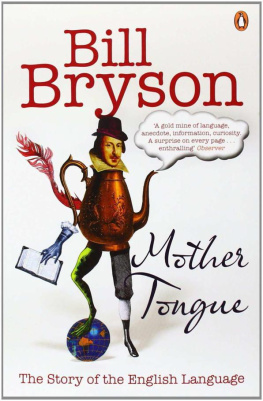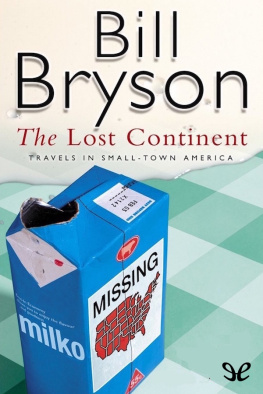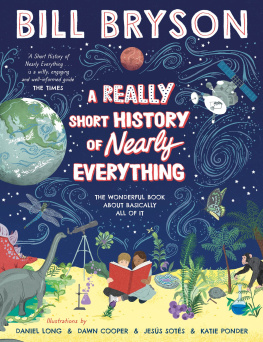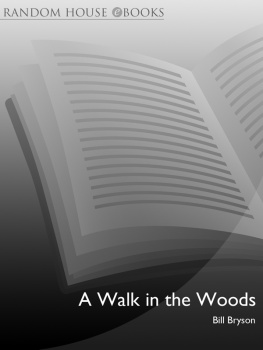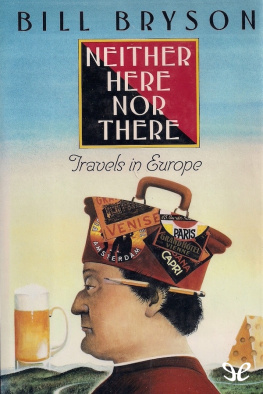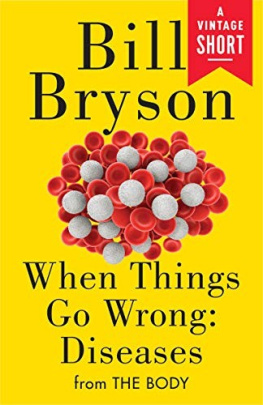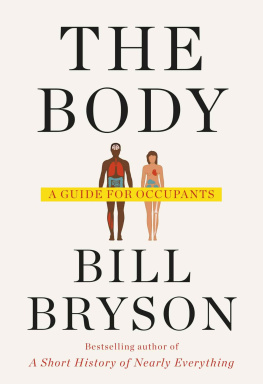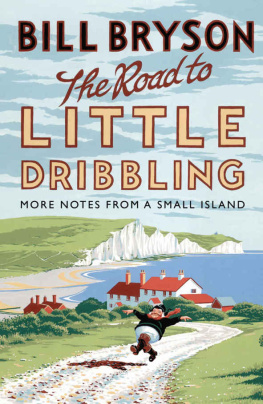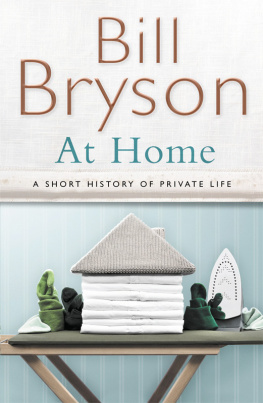Bill Bryson - The Life and Times of the Thunderbolt Kid: A Memoir
Here you can read online Bill Bryson - The Life and Times of the Thunderbolt Kid: A Memoir full text of the book (entire story) in english for free. Download pdf and epub, get meaning, cover and reviews about this ebook. year: 2006, publisher: Broadway Books, genre: Detective and thriller. Description of the work, (preface) as well as reviews are available. Best literature library LitArk.com created for fans of good reading and offers a wide selection of genres:
Romance novel
Science fiction
Adventure
Detective
Science
History
Home and family
Prose
Art
Politics
Computer
Non-fiction
Religion
Business
Children
Humor
Choose a favorite category and find really read worthwhile books. Enjoy immersion in the world of imagination, feel the emotions of the characters or learn something new for yourself, make an fascinating discovery.

- Book:The Life and Times of the Thunderbolt Kid: A Memoir
- Author:
- Publisher:Broadway Books
- Genre:
- Year:2006
- Rating:5 / 5
- Favourites:Add to favourites
- Your mark:
- 100
- 1
- 2
- 3
- 4
- 5
The Life and Times of the Thunderbolt Kid: A Memoir: summary, description and annotation
We offer to read an annotation, description, summary or preface (depends on what the author of the book "The Life and Times of the Thunderbolt Kid: A Memoir" wrote himself). If you haven't found the necessary information about the book — write in the comments, we will try to find it.
The Life and Times of the Thunderbolt Kid: A Memoir — read online for free the complete book (whole text) full work
Below is the text of the book, divided by pages. System saving the place of the last page read, allows you to conveniently read the book "The Life and Times of the Thunderbolt Kid: A Memoir" online for free, without having to search again every time where you left off. Put a bookmark, and you can go to the page where you finished reading at any time.
Font size:
Interval:
Bookmark:
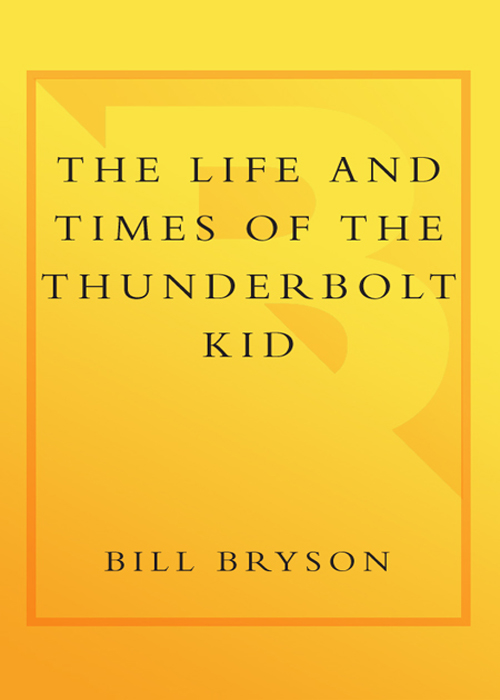
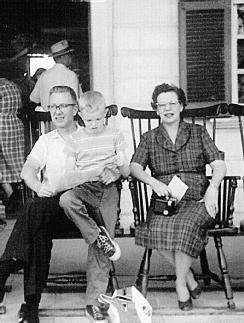
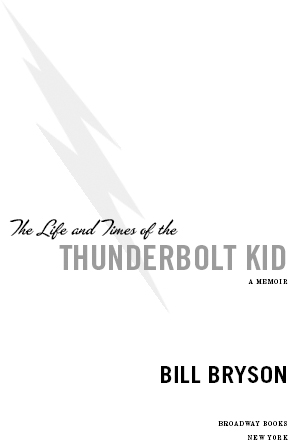
Contents
IN MEMORY OF JED MATTES
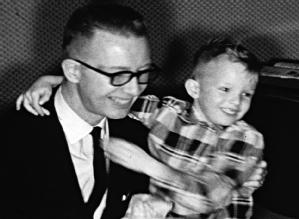
Foreword and Acknowledgments
My kid days were pretty good ones, on the whole. My parents were patient and kind and approximately normal. They didnt chain me in the cellar. They didnt call me It. I was born a boy and allowed to stay that way. My mother, as youll see, sent me to school once in Capri pants, but otherwise there was little trauma in my upbringing.
Growing up was easy. It required no thought or effort on my part. It was going to happen anyway. So what follows isnt terribly eventful, Im afraid. And yet it was by a very large margin the most fearful, thrilling, interesting, instructive, eye-popping, lustful, eager, troubled, untroubled, confused, serene, and unnerving time of my life. Coincidentally, it was all those things for America, too.
Everything recorded here is true and really happened, more or less, but nearly all the names and a few of the details have been changed in the hope of sparing embarrassment. A small part of the story originally appeared in somewhat different form in The New Yorker.
As ever, I have received generous help from many quarters, and I would like to thank here, sincerely and alphabetically, Aosaf Afzal, Matthew Angerer, Charles Elliott, Larry Finlay, Will Francis, Carol Heaton, Jay Horning, Patrick Janson-Smith, Tom and Nancy Jones, Fred Morris, Steve Rubin, Marianne Velmans, Daniel Wiles, and the staff of the Drake University and Des Moines Public Libraries in Iowa and Durham University Library in England.
I remain especially grateful to Gerry Howard, my astute and ever thoughtful American publisher, for a stack of Boys Life magazines, one of the best and most useful gifts I have had in years, and to Jack Peverill of Sarasota, Florida, for the provision of copious amounts of helpful material. And of course I remain perpetually grateful to my family, not least my dear wife, Cynthia, for more help than I could begin to list, to my brother, Michael, for much archival material, and to my incomparably wonderful, infinitely sporting mother, Mary McGuire Bryson, without whom, it goes without saying, nothing that follows would have been possible.
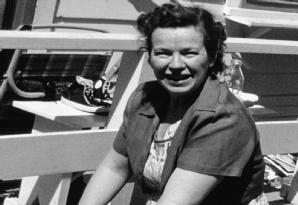
Chapter 1
HOMETOWN
SPRINGFIELD, ILL. (AP)The State Senate of Illinois yesterday disbanded its Committee on Efficiency and Economy for reasons of efficiency and economy.
Des Moines Tribune, February 6, 1955
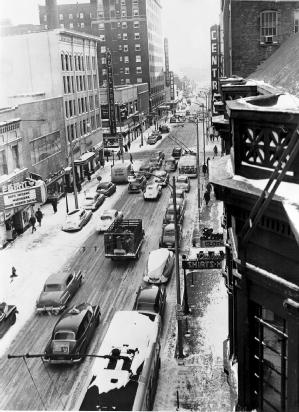
IN THE LATE 1950S, the Royal Canadian Air Force produced a booklet on isometrics, a form of exercise that enjoyed a short but devoted vogue with my father. The idea of isometrics was that you used any unyielding object, like a tree or a wall, and pressed against it with all your might from various positions to tone and strengthen different groups of muscles. Since everybody already has access to trees and walls, you didnt need to invest in a lot of costly equipment, which I expect was what attracted my dad.
What made it unfortunate in my fathers case is that he would do his isometrics on airplanes. At some point in every flight, he would stroll back to the galley area or the space by the emergency exit and, taking up the posture of someone trying to budge a very heavy piece of machinery, he would begin to push with his back or shoulder against the outer wall of the plane, pausing occasionally to take deep breaths before returning with quiet grunts to the task.
Since it looked uncannily, if unfathomably, as if he were trying to force a hole in the side of the plane, this naturally drew attention. Businessmen in nearby seats would stare over the tops of their glasses. A stewardess would pop her head out of the galley and likewise stare, but with a certain hard caution, as if remembering some aspect of her training that she had not previously been called upon to implement.
Seeing that he had observers, my father would straighten up and smile genially and begin to outline the engaging principles behind isometrics. Then he would give a demonstration to an audience that swiftly consisted of no one. He seemed curiously incapable of feeling embarrassment in such situations, but that was all right because I felt enough for both of usindeed, enough for us and all the other passengers, the airline and its employees, and the whole of whatever state we were flying over.
Two things made these undertakings tolerable. The first was that back on solid ground my dad wasnt half as foolish most of the time. The second was that the purpose of these trips was always to go to a Major League city, stay in a big downtown hotel, and attend ball games, and that excused a great dealwell, everything, in fact. My dad was a sportswriter for The Des Moines Register, which in those days was one of the countrys best papers, and often took me along on trips through the Midwest. Sometimes these were car trips to places like Sioux City or Burlington, but at least once a summer we boarded a big silver planea huge event in those daysand lumbered through the summery skies, up among the fleecy clouds, to St. Louis or Chicago or Detroit to take in a home stand. It was a kind of working holiday for my dad.
Baseball, like everything else, was part of a simpler world in those days, and I was allowed to go with him into the clubhouse and dugout and onto the field before games. I have had my hair tousled by Stan Musial. I have handed Willie Mays a ball that had skittered past him as he played catch. I have lent my binoculars to Harvey Kuenn (or possibly it was Billy Hoeft) so that he could scope some busty blonde in the upper deck. Once on a hot July afternoon I sat in a nearly airless clubhouse under the left-field grandstand at Wrigley Field beside Ernie Banks, the Cubs great shortstop, as he autographed boxes of new white baseballs (which are, incidentally, one of the most pleasurably aromatic things on earth, and worth spending time around anyway). Unbidden, I took it upon myself to sit beside him and pass him each new ball. This slowed the process considerably, but he gave a little smile each time and said thank you as if I had done him quite a favor. He was the nicest human being I have ever met. It was like being friends with God.
I CANT IMAGINE there has ever been a more gratifying time or place to be alive than America in the 1950s. No country had ever known such prosperity. When the war ended the United States had $26 billion worth of factories that hadnt existed before the war, $140 billion in savings and war bonds just waiting to be spent, no bomb damage, and practically no competition. All that American companies had to do was stop making tanks and battleships and start making Buicks and Frigidairesand boy did they.
By 1951, when I came sliding down the chute, almost 90 percent of American families had refrigerators, and nearly three-quarters had washing machines, telephones, vacuum cleaners, and gas or electric stovesthings that most of the rest of the world could still only fantasize about. Americans owned 80 percent of the worlds electrical goods, controlled two-thirds of the worlds productive capacity, produced more than 40 percent of its electricity, 60 percent of its oil, and 66 percent of its steel. The 5 percent of people on Earth who were Americans had more wealth than the other 95 percent combined.
Font size:
Interval:
Bookmark:
Similar books «The Life and Times of the Thunderbolt Kid: A Memoir»
Look at similar books to The Life and Times of the Thunderbolt Kid: A Memoir. We have selected literature similar in name and meaning in the hope of providing readers with more options to find new, interesting, not yet read works.
Discussion, reviews of the book The Life and Times of the Thunderbolt Kid: A Memoir and just readers' own opinions. Leave your comments, write what you think about the work, its meaning or the main characters. Specify what exactly you liked and what you didn't like, and why you think so.

